What is a Possessive Noun? (with examples) | Best Guide [year]
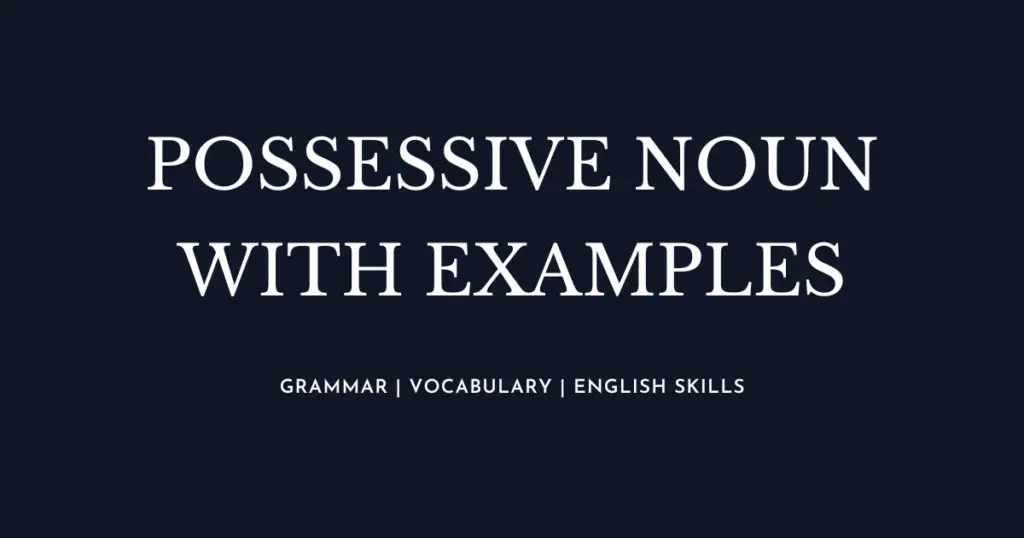
What is a Possessive Noun? Possessive Nouns are the type of nouns which shows the ownership (which means something that owns) by the person. It is used by adding an apostrophe and the letter s (i.e, -‘s) to the end of the word. For example: Today, I went to Raju’s house and played a lot […]
What is Compound Noun? (with examples) | Best English Guide [year]
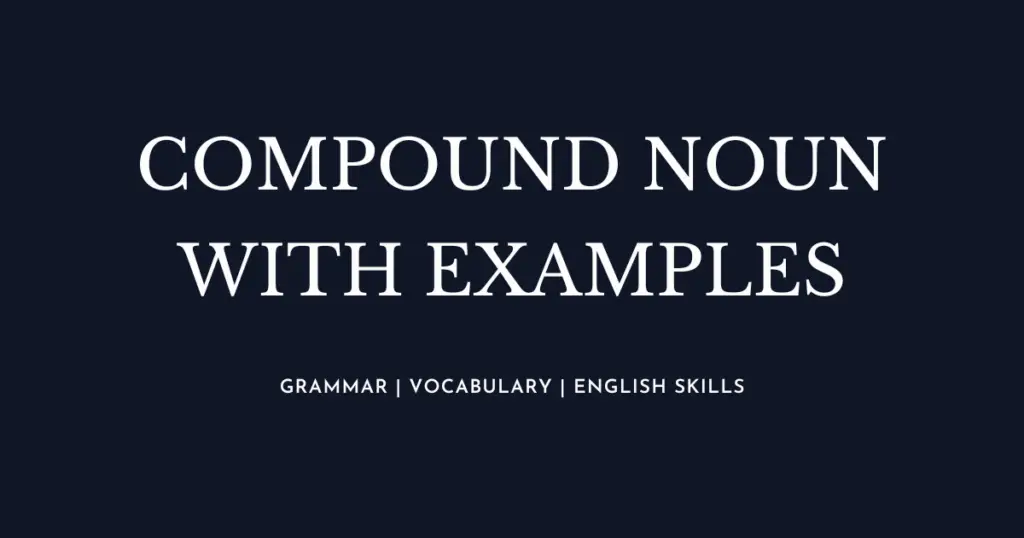
What is a Compound Noun? A compound Noun is a type of noun in which two or more words are combined to give a specific meaning to a thing, place, etc. For example toothpaste, raincoat, bus stop, keyboard, mouse pad, bookshelf, face cream, army tank, cowboy, six-pack, etc. Mostly in Compound Nouns (words), the first […]
What are Collective Nouns? (with examples) | Best Guide [year]
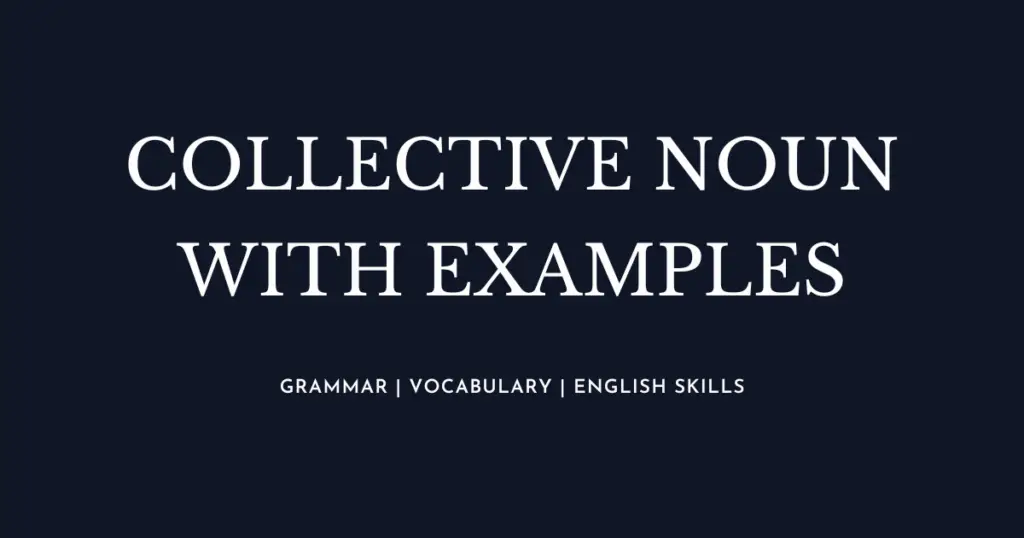
What are Collective Nouns? Collective Nouns are the type of nouns which refers to a group (collection) of people, animals, things, places, etc. For example team, audience, society, family, crowd, crew, police, army, committee, etc. These are not individuals but they are the collection/set of individuals. Also Read: Noun Definition and Examples | Best English […]
What are Uncountable Nouns? (with examples) | Guide [year]
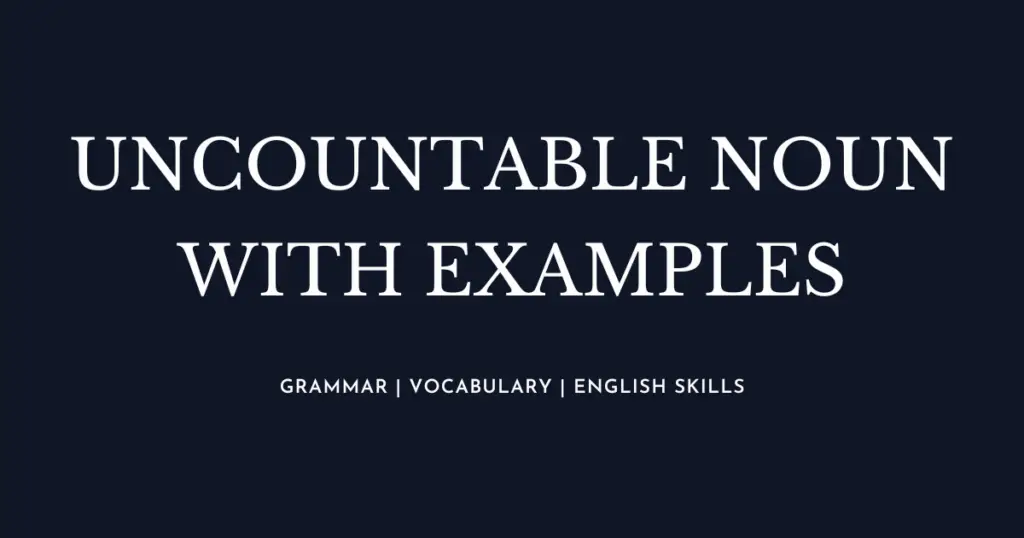
What are Uncountable Nouns? Uncountable nouns are the type of nouns in which we cannot count/measure the number (quantity) of things, places, etc. In other words, uncountable things are Uncountable Nouns. It is also called as non-count noun or mass noun. These things are difficult to count because these are very small to count and […]
What is Countable Noun? (with examples) | Best Guide [year]
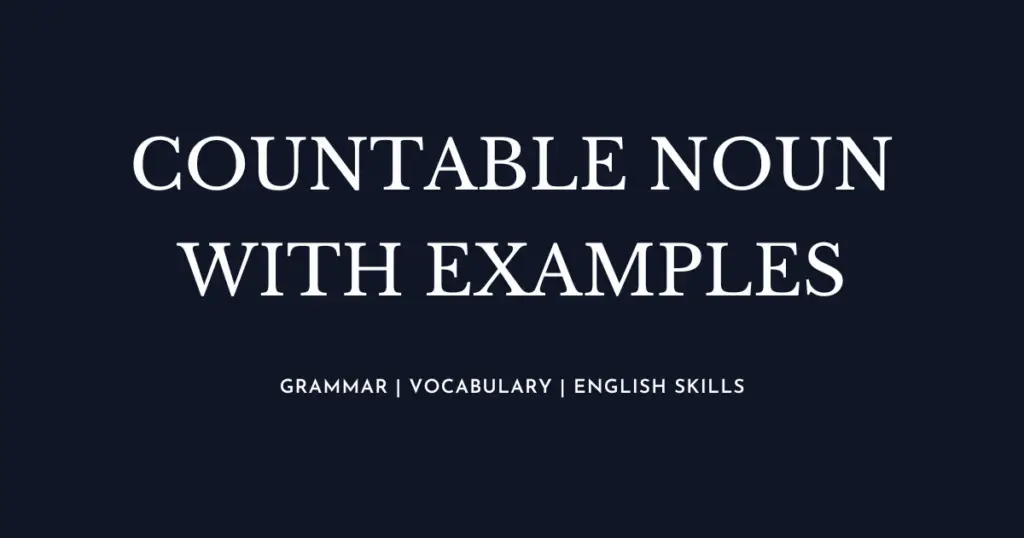
What is a Countable Noun? Countable Noun is a type of noun in which we can count the number of things, places, etc. In other words, countable things are usually “Count Nouns” or “Countable Nouns”. They can have Singular and Plural forms. Usually, the Noun is categorized into two types, ie. Countable Noun and Non […]
What is a Concrete Noun? | Best Guide [year]

What is a Concrete Noun? Concrete Noun: A concrete Noun is a noun which refers to physical things’ names. In other words, these things can be detected by our sense organs (ie, we can see, touch, smell, hear and taste). For example, consider fruits, vegetables, chair, tables, water, hat, gun, clothes, etc. Always remember that […]
What is an Abstract Noun? (with examples) | Best Guide [year]
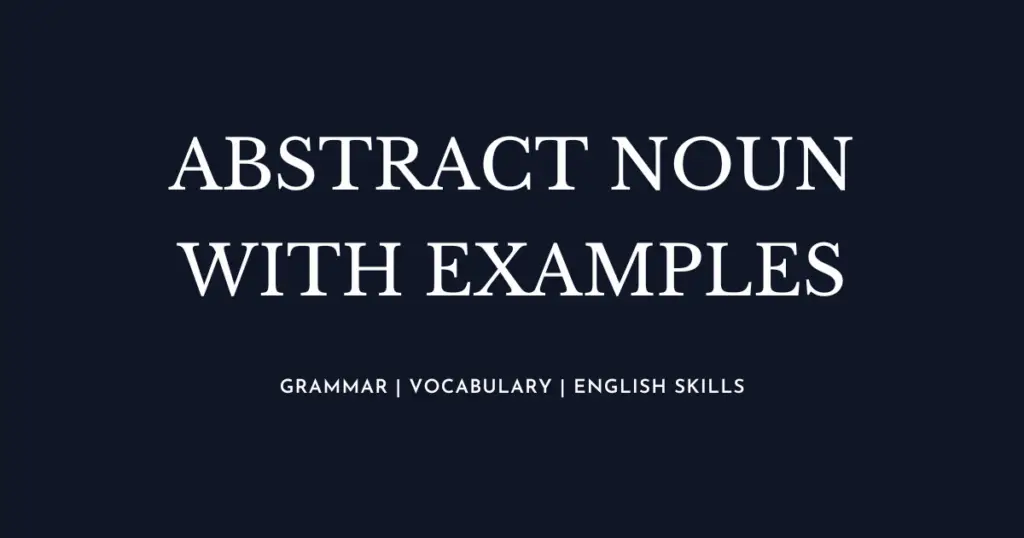
What is an Abstract Noun? What is an Abstract Noun: An Abstract Noun is a noun which refers to the names of non-physical (untouchable) things. In other words, the things that cannot be detected by our sense organs (ie, we cannot touch, smell, see, hear and taste). So, always remember that you can only feel […]
What is a Common Noun? (Definition & Examples) | Best Guide [year]
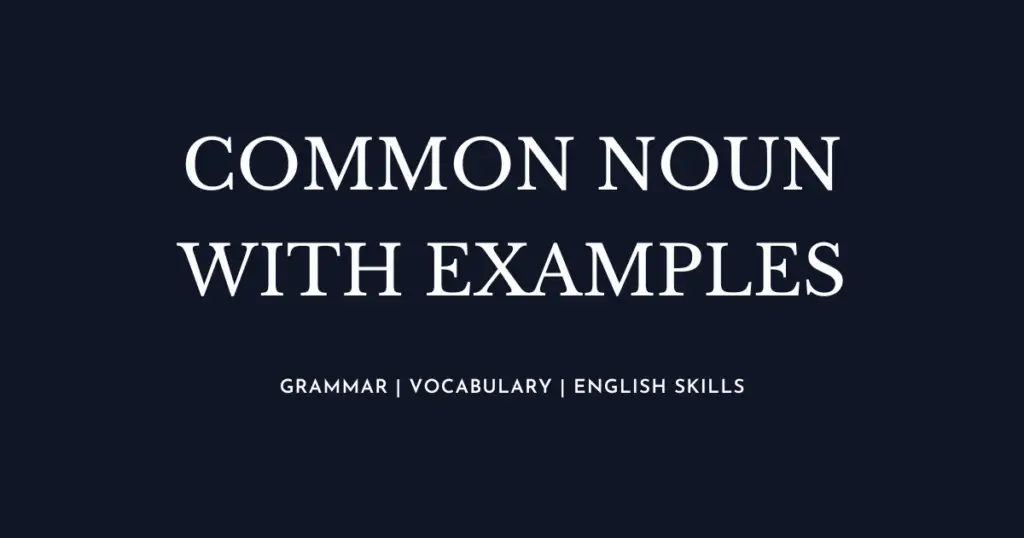
What is a Common Noun? What is a Common Noun: A Common Noun is usually the name of a group of people, animals, things, places, etc. These type of Nouns are only capitalized at the beginning of the (new) sentence. Inshort, it is a group or collection which can be classified further as Proper Noun. […]
Proper Noun with examples | Best English Guide [year]
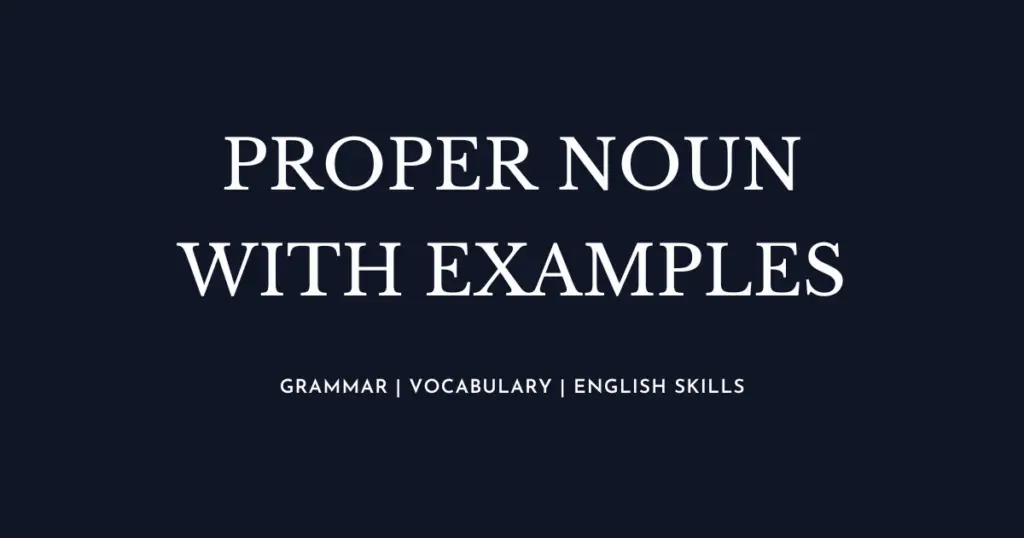
What is a Proper Noun? Proper Noun with examples: A Proper Noun is usually a specific (particular) name of the person, place, thing, etc. These types of nouns are always capitalized anywhere in the sentence in the English Language. Here, are few examples in which Proper Noun is used in many other ways. All the […]
Rules of Noun (with examples) | Best English Guide [year]
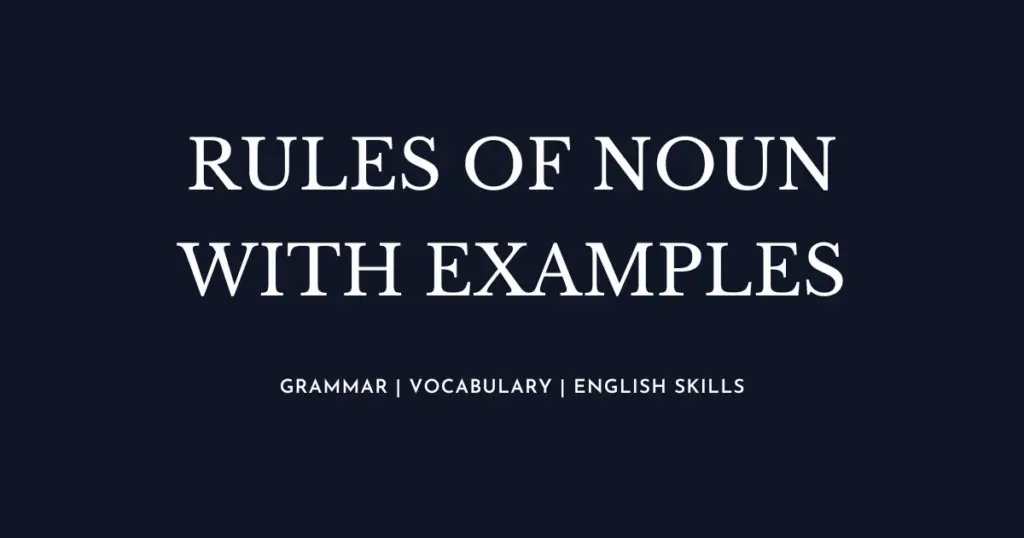
Introduction Rules of Noun: Before you use a noun in any sentence, it is important to understand its basic rules of it, so that you can understand the proper functionality of the Noun. Before you start reading these rules, make sure that you understood the concept of nouns. If you haven’t read or missed that […]